Jira Cloud
You can use this integration guide to install and configure the Squadcast extension in Jira Cloud to create issues in Jira projects when there is an incident in Squadcast either Automatically or Manually and sync the status bidirectionally.
Pre-requisites
-
A valid Squadcast cloud subscription or a trial account (in either the Pro or Enterprise plans)
-
A user account in Jira Cloud version with
Administratorprivileges -
Only the Account Owner and Users with the
Manage Extensionspermission will be able to enable, disable and manage Extensions in Squadcast
Configuring the Extension
In Jira Cloud: Installing Squadcast App
(1) Login to your Jira Cloud account and install the Squadcast Jira Cloud plugin corresponding to your data centre.
Plugin for the US data center - Squadcast Jira Cloud plugin
Plugin for the EU data center - Squadcast for Jira Cloud (EU only version)

(2) Click on Configure once the app has been installed
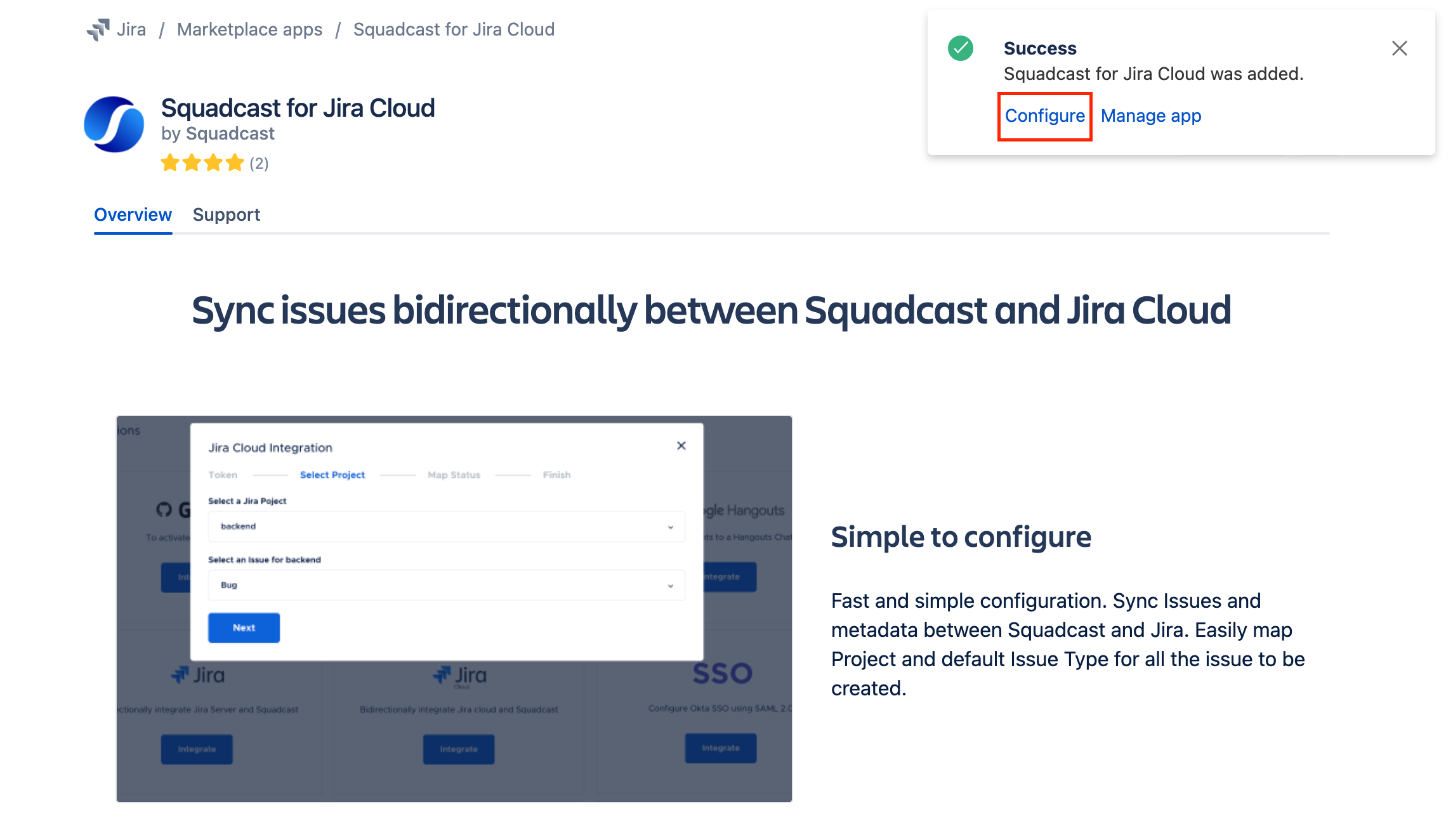
(3) Copy the Jira Client Token that is available in Step 2 of the Configuration page
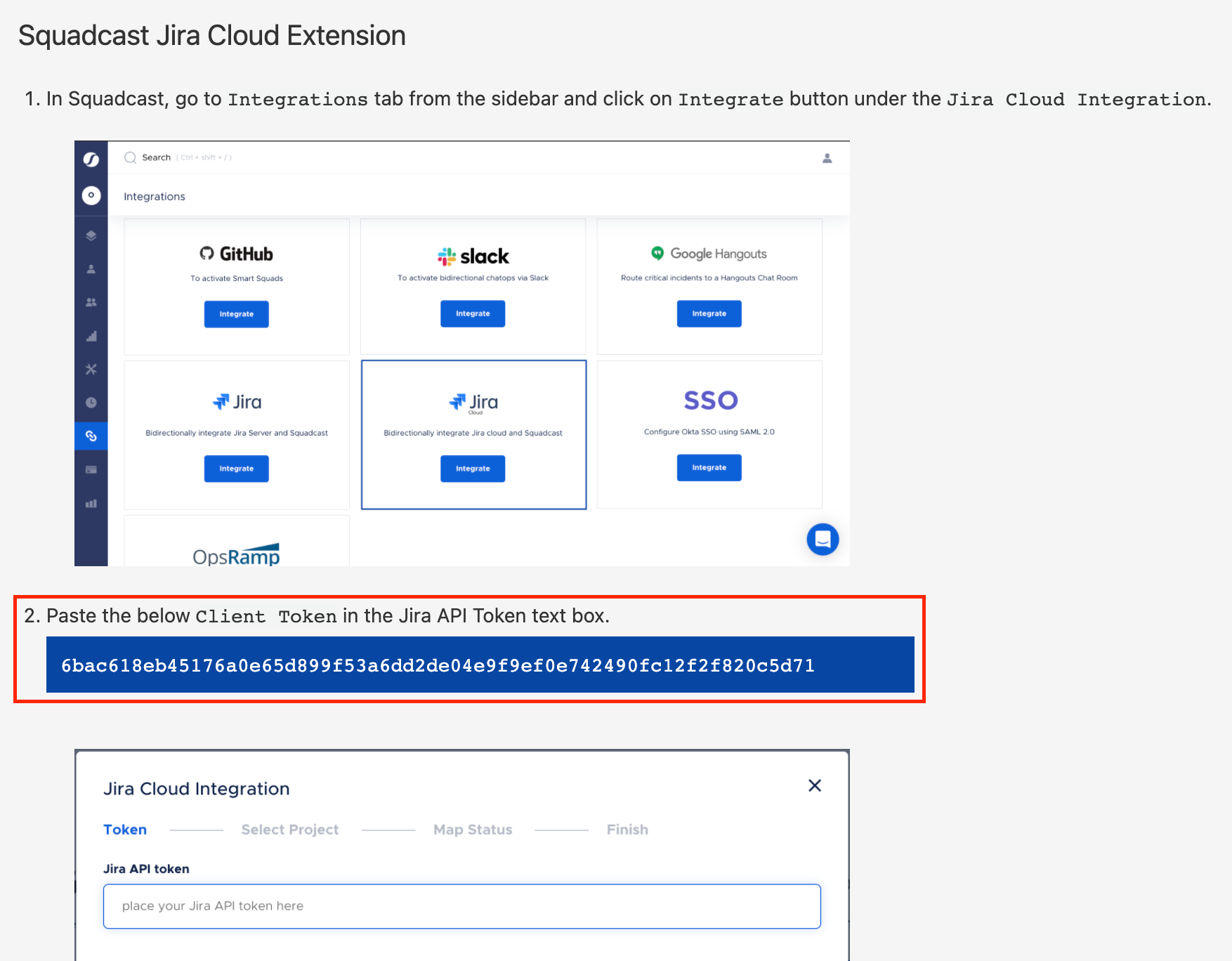
In Squadcast: Configuring Jira Cloud Extension
This would be the global configuration for the Jira Cloud extension. After configuring the same, you can map a particular Jira Cloud project to one or more Squadcast Services by following the steps here.
(1) In Squadcast, navigate to Settings and select the Extensions tab from the left navigation sidebar
(2) Move over to the Jira Cloud extension and click on Integrate
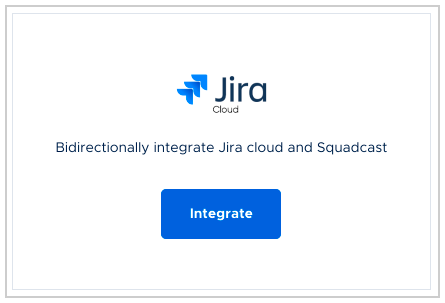
(3) Paste the previously copied Jira Client Token and click on Save & Next
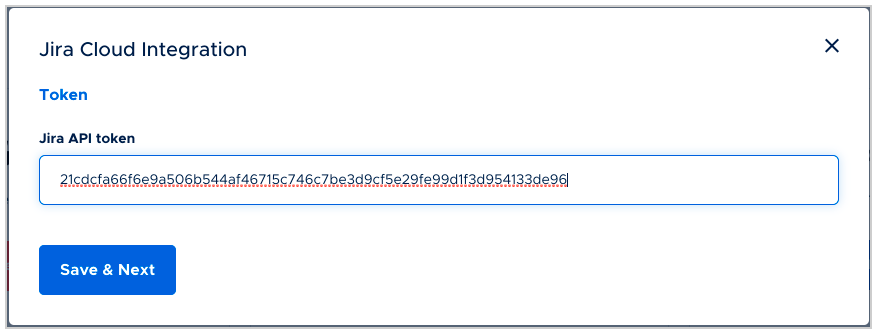
(4) Select the Jira Project in which tickets need to be created, select the Issue Type and click Next
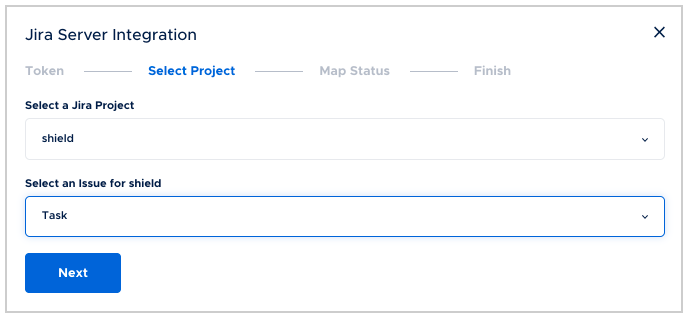
(5) Then, map the Jira Issue Status to the available Squadcast incident statuses and click Next
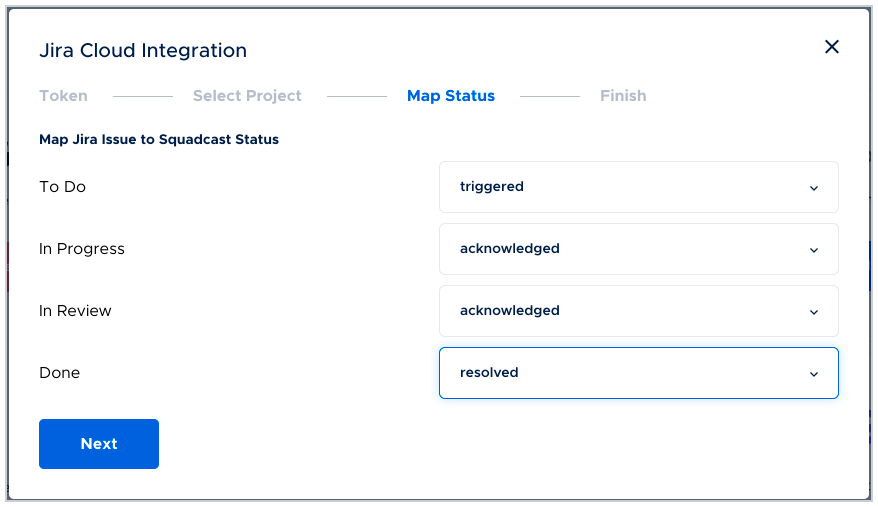
(6) Select the Mode in which you want to add tickets to Jira for incidents in Squadcast: Manually or Automatically and then, select the Service(s), for whose incidents Jira tickets must be created by Squadcast and click on Save & Integrate
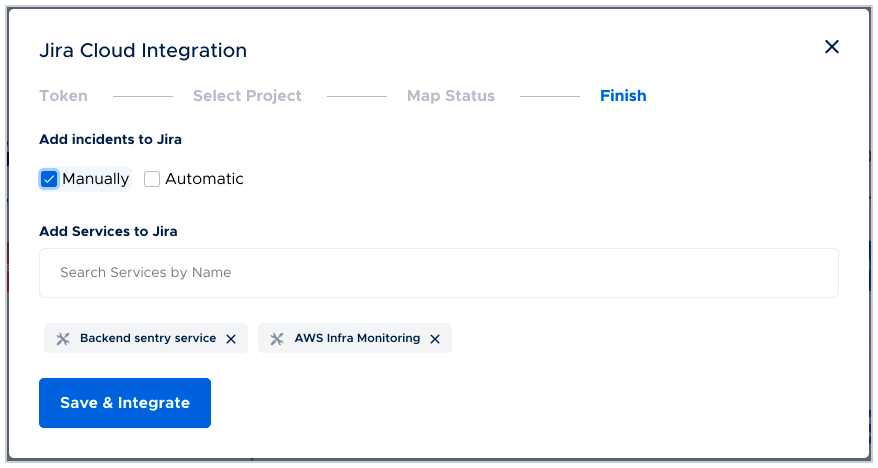
That’s it! Your Jira Cloud integration is good to go.
Usage of the Automatic and Manual Modes
Automatic mode
If you have chosen the Automatic mode while configuring Jira cloud then you need not do anything. Any incident triggered for the selected Service(s) will automatically create an issue in the selected Jira Project with the configured Issue Type.
Manual mode
If Manual Mode is chosen, follow the below steps to create a ticket in Jira:
(1) Open the incident in Squadcast and click on More Actions button in the Incident Details page

(2) Select Jira Cloud action and click on Create a ticket in Jira
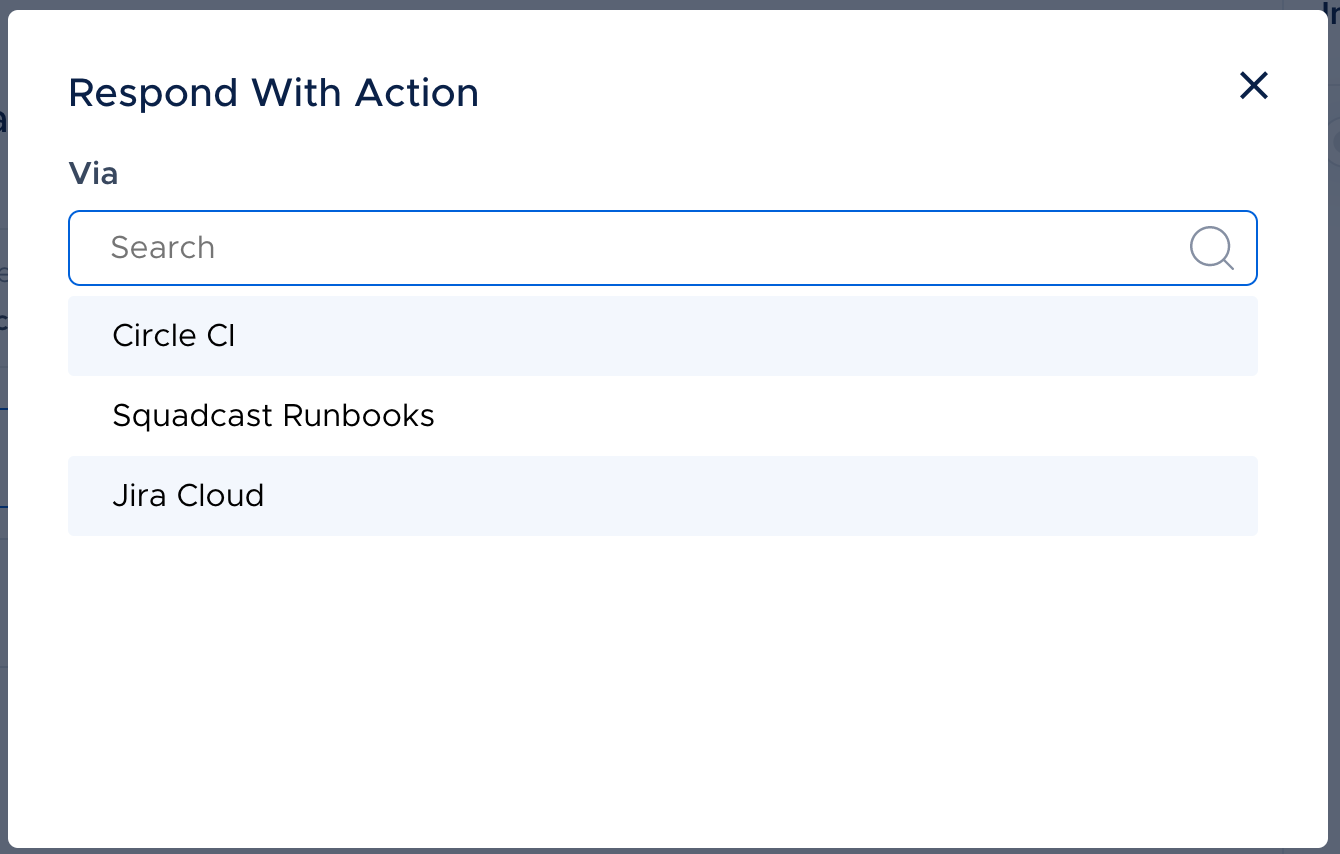
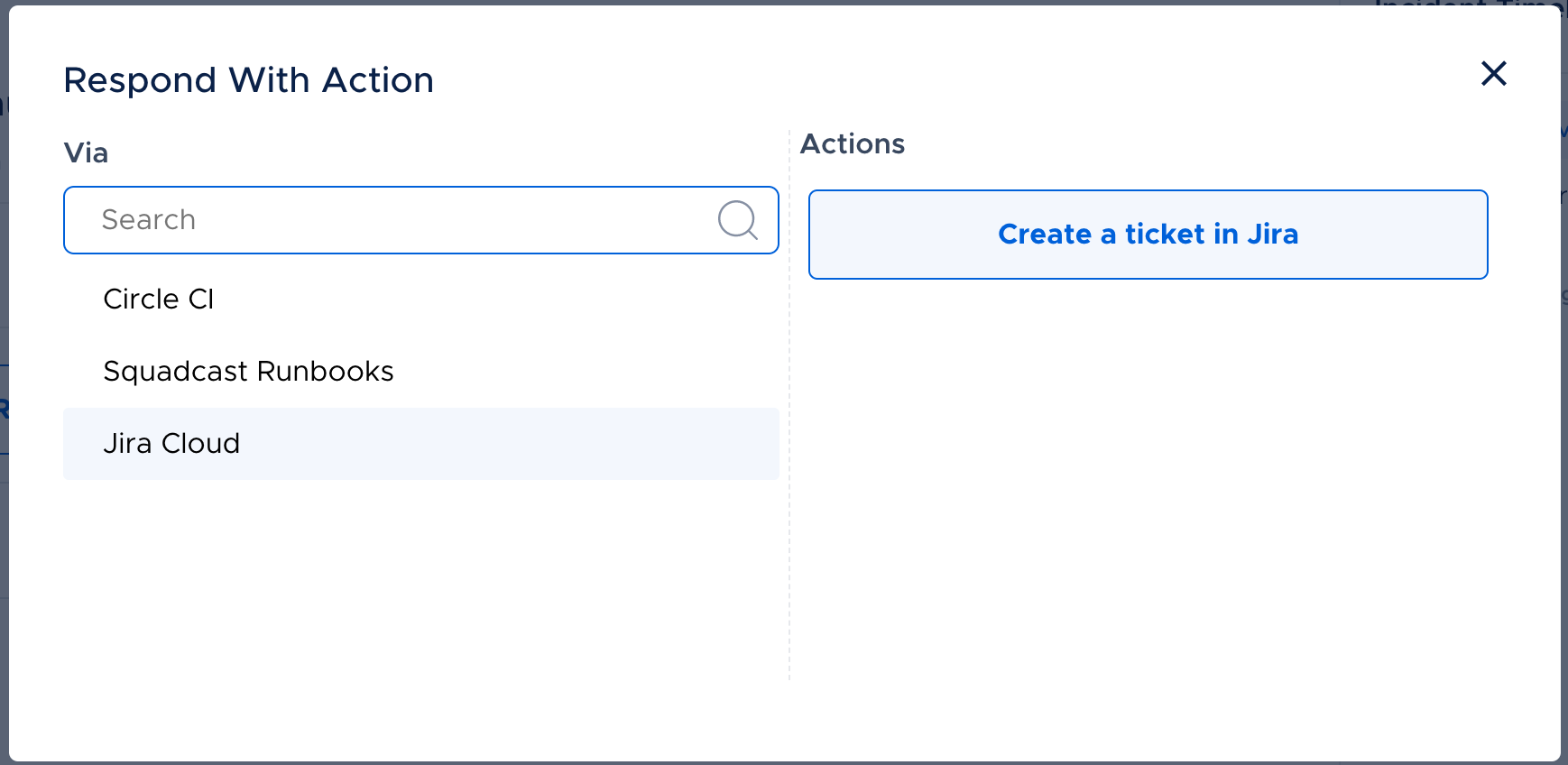
A ticket will be created in the selected Jira Project with the configured Issue Type. This action will be recorded in the Incident Timeline with a hyperlink to the created Jira ticket.


Configuring a Jira Project for each Squadcast Service
If you would like for tickets to be created for incidents of each Service in a different Jira Project, you can configure so within the Services page.
(1) For a Service, click the More options
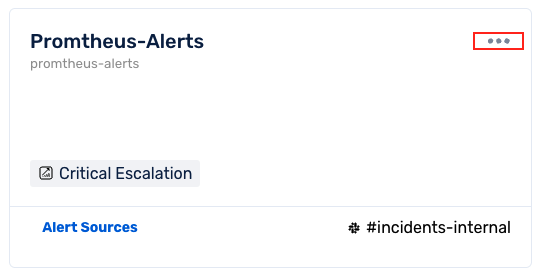
(2) Select Jira Cloud Project
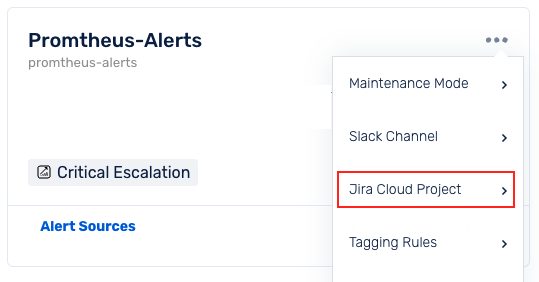
(3) Here, map the Jira Project of your choice and select the required Type
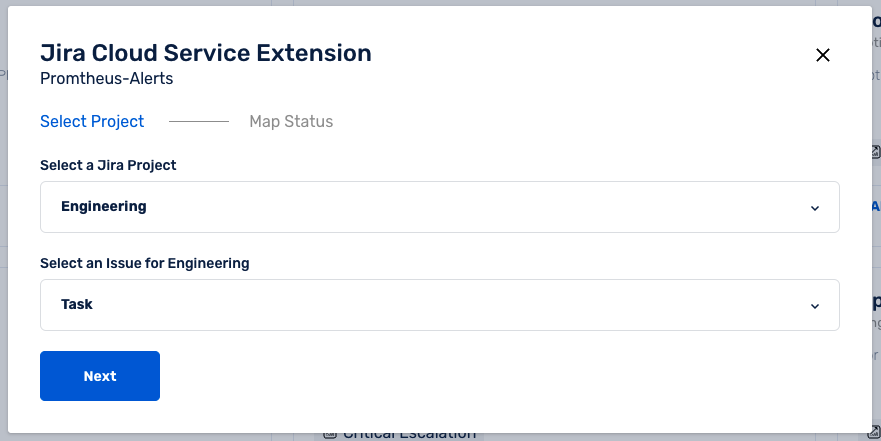
(4) Next, you can choose to either create tickets Manually or Automatically for the Service in the previously selected Project. Additionally, you can map the available Project Status to the incident states in Squadcast - Triggered, Acknowledged, Resolved. Then, click Save
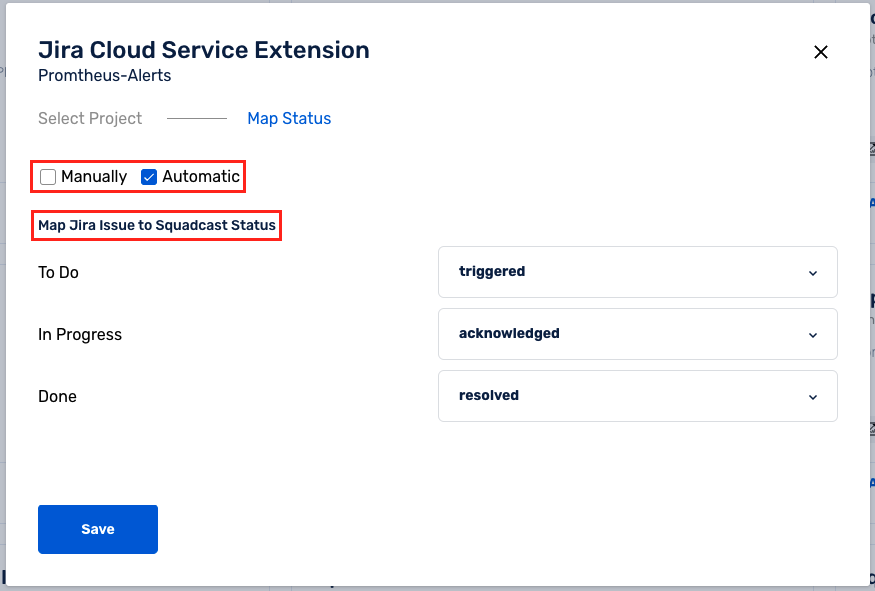
If you configure a Jira Cloud Project for a Service, this setting will override the previously configured Jira Cloud Extensions settings (the global configuration in Settings > Extensions > Jira Cloud).